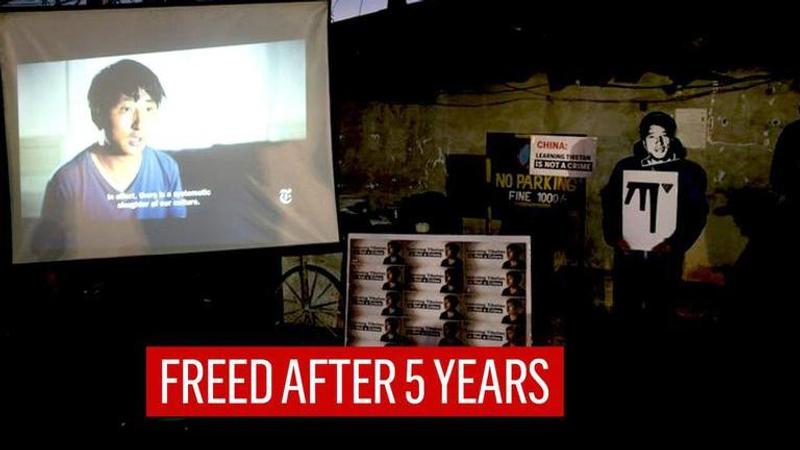Published 20:27 IST, January 29th 2021
China frees Tibetan activist charged with 'inciting separatism' after 5 years
After completing his five years jail sentence, an activist was finally released by the People’s Republic of China. Tashi Wangchuk was first arrested in 2016.

After completing his five years jail sentence, a Tibetan activist was finally released by the People’s Republic of China. Tashi Wangchuk was first arrested in 2016 after he appeared in a New York Times documentary. Two years later, a court charged him with an attempt to “incite separatism” and awarded him a prison sentence.
The documentary
The documentary which was produced by New York Times followed Wangchuk as he wandered across Chinese Capital Beijing. Throughout his time in Beijing, the activist attempted to get Chinese state media and courts to address what he describes as the diminishing use of the Tibetan language.
However, this documentary proved fatal to the young activist after prosecutors cited it as evidence of incitement at his trial. Wangchuk viewed it as an attempt to save his constantly drifting culture. While Beijing claims to have "peacefully liberated" Tibet in 1951, latter has accused it of exploiting its natural resources and threatening its culture and Buddhist religion.
In the aftermath of Wangchuk’s release, his attorney Liang Xiaojun tweeted that he had been escorted home by officials and was now with his sister's family in Yushu, Qinghai province and was in good health, although Liang was unsure if Tashi was "fully free". Previously, activists rallying for his release accused the Chinese authorities of inflicting torture on Wangchuk.
Atrocities on Uighurs
This comes as China denied imposing coercive birth control measures among Muslim minority women, following an outcry over a tweet by the Chinese Embassy in Washington claiming that government policies had freed women of the Uighur ethnic group from being “baby-making machines”. China has been accused of detaining minority Uighur community in large detention camps in Xinjiang province. China says the centres are intended to combat extremism and teach job skills, but former residents and rights groups say they target Islam and minority languages and culture.
Updated 20:25 IST, January 29th 2021




